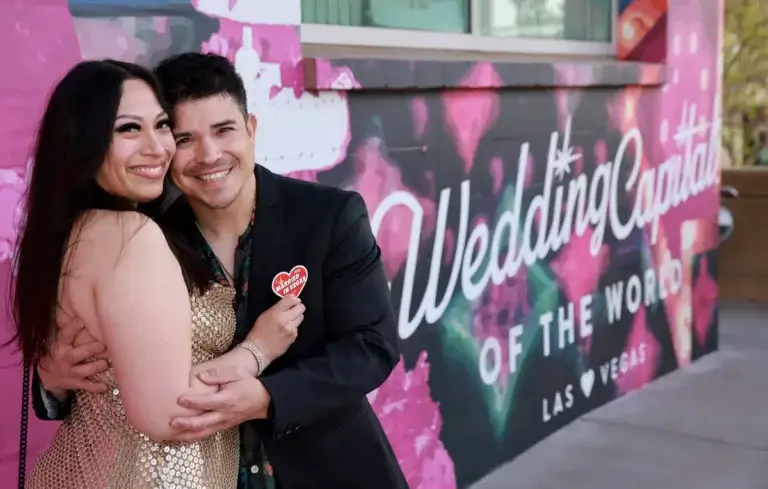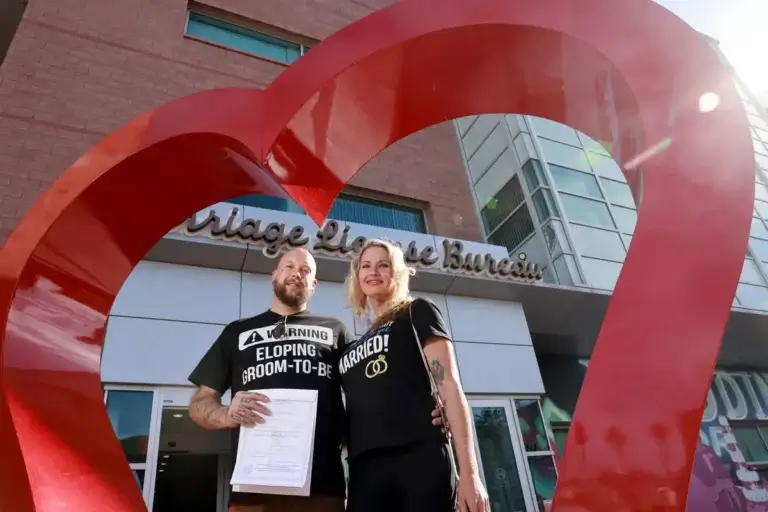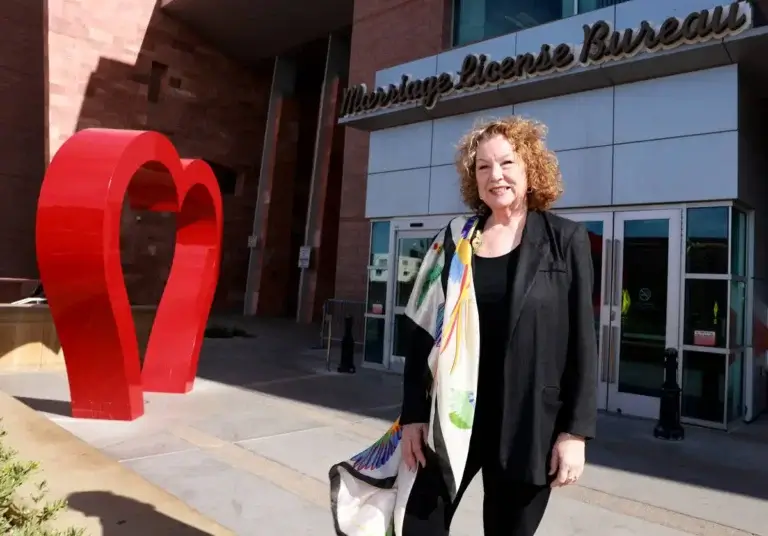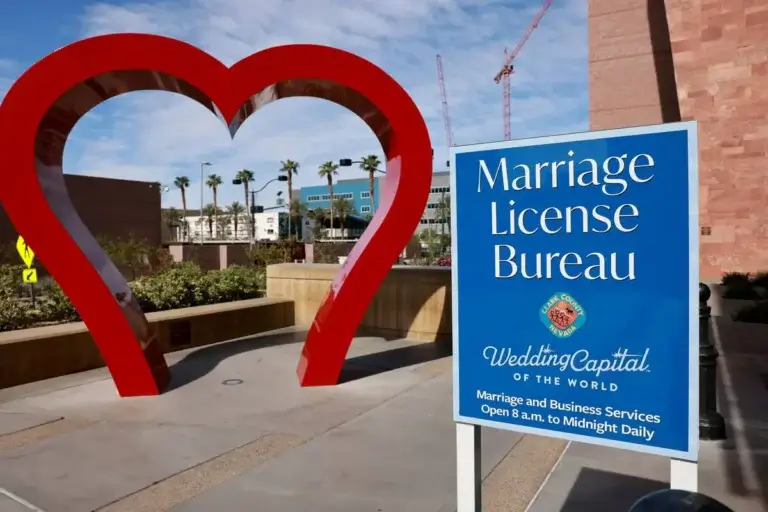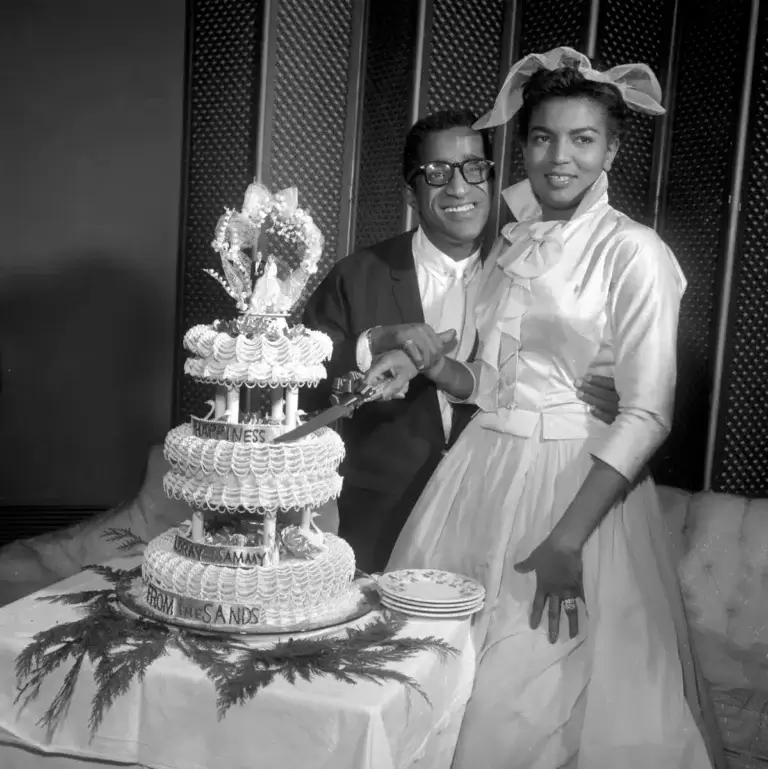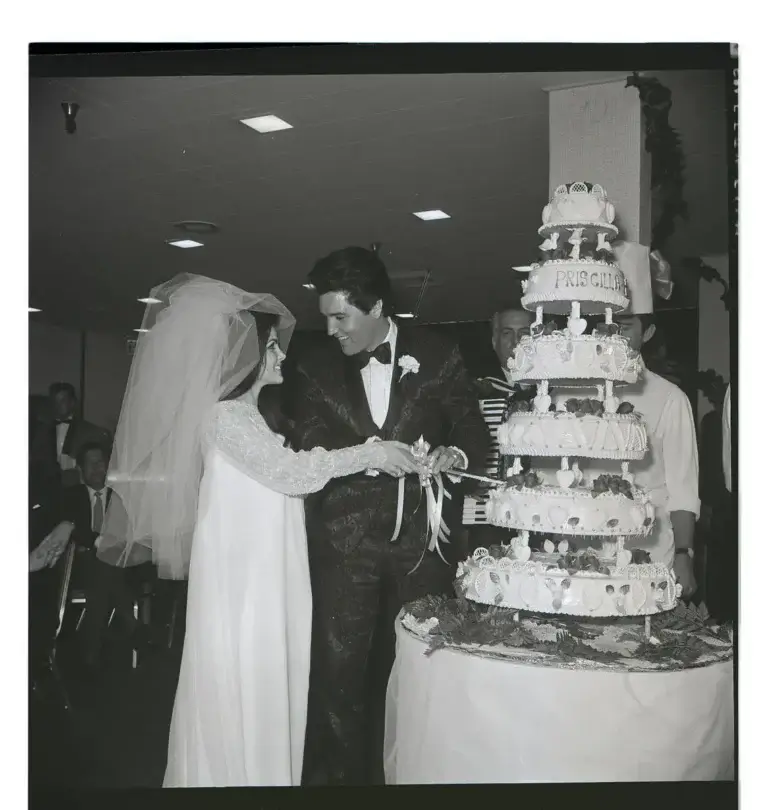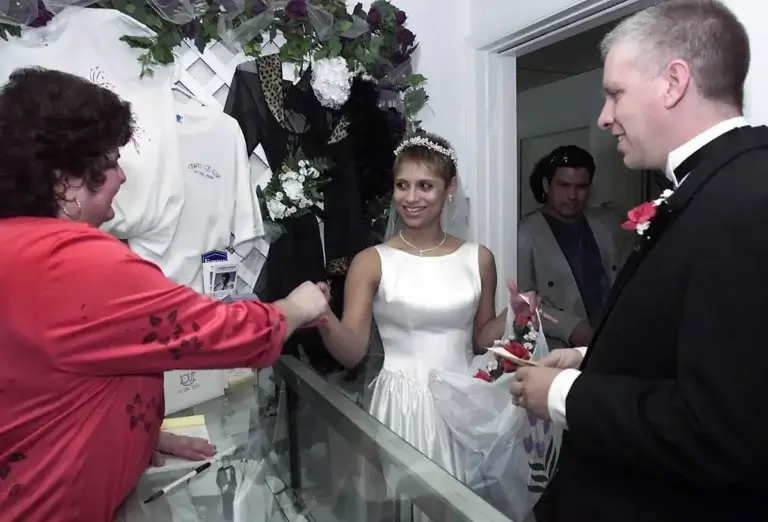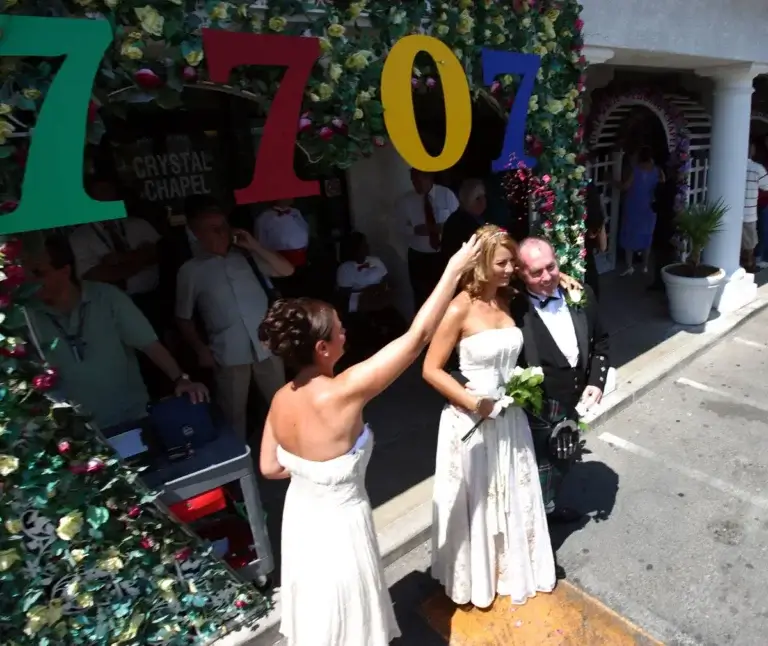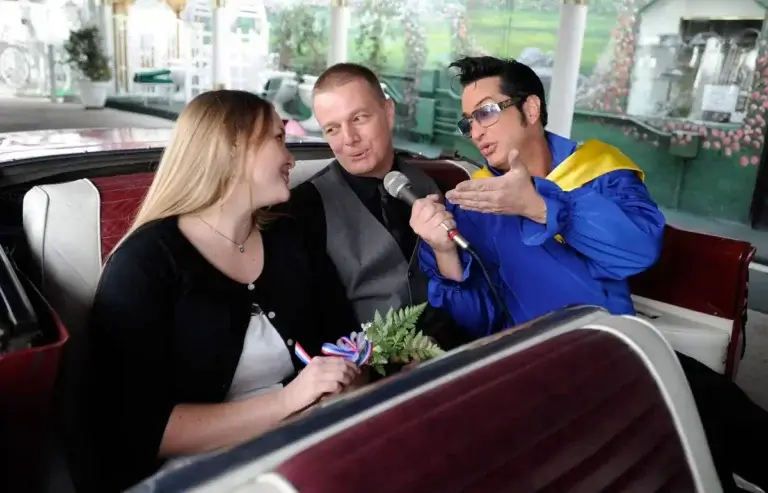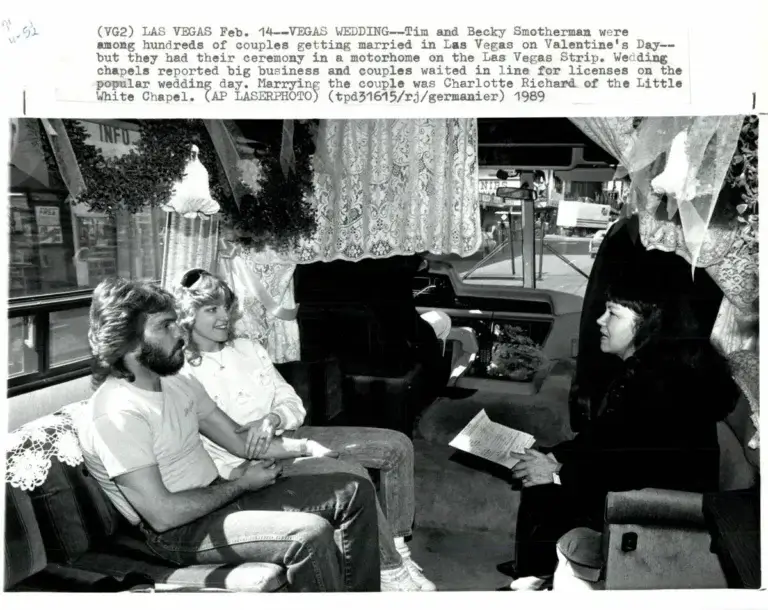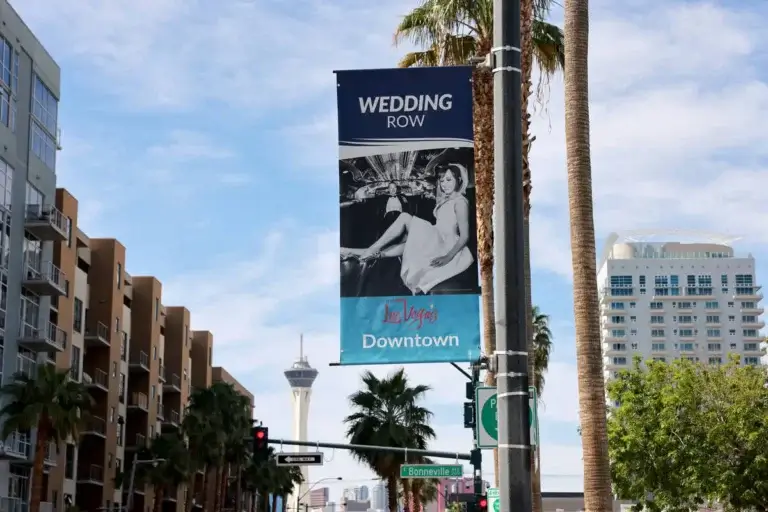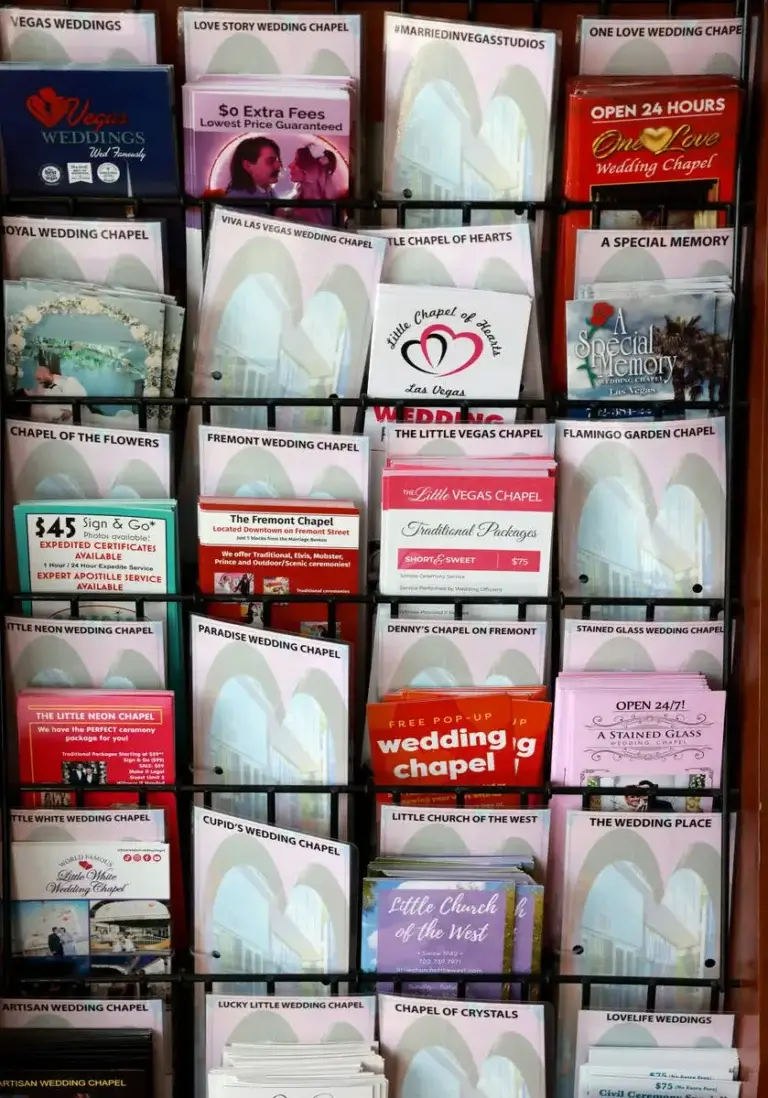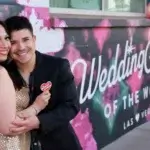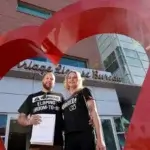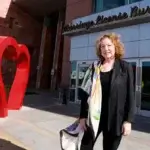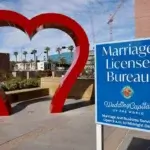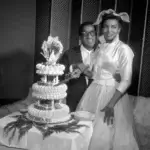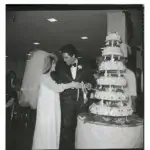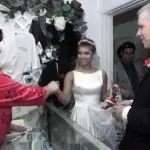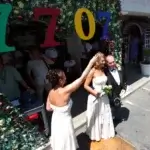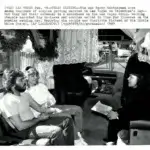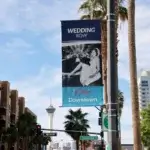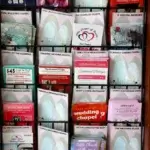By: McKenna Ross | Las Vegas Review Journal
Long before social media posts and email announcements, Las Vegas put its wedding industry on the map the old-fashioned way: the local newspaper.
When traveling couples got hitched at one of the mid-century resort’s on-site chapels, publicists picked up an easy way to freely advertise their property. They sent a wedding announcement to the couple’s hometown paper — a free submission that guaranteed the property’s mention and cemented Las Vegas as one of the best places to get married in the U.S.
While wedding announcements have changed in the last century-plus, much of the structures and themes in place to promote wedding tourism in Las Vegas have stayed the same, said Clark County Clerk Lynn Marie Goya.
Goya and industry officials have worked together to promote the region’s wedding tourism since the inception of the Wedding Chamber of Commerce roughly eight years ago. The clerk’s office, which oversees the marriage license bureau, and the chamber highlight the 70-plus years of marketing “the Wedding Capital of the World” as a place for easy marriage license processing, streamlined weddings and good bang for your buck.
“The more I find out about what our past model was, the more it fits in with our current model,” Goya said. “I’m surprised how little we’ve changed, frankly.”
Quick wedding roots
Nevada has long leaned on weddings as a way to bring in revenue to the state.
“The truth is Nevada is not really a farming community, we don’t have a lot of resources other than mining,” Goya said. “Very, very early on we realized that tourism had to be its bread and butter.”
The state differentiated itself from neighbors early on by loosening some wedding requirements. By the 1930s, it had no three-day waiting period to obtain a license – a common Prohibition-era barrier to avoid drunken weddings – and no blood test requirements. Wedding chapels popped up in homes around the city.
By the 1950s, more chapels were built – including Little White Chapel and Chapel of the Bells, still operating today – the destination had solidified its reputation. The first known reference to Las Vegas as the “Wedding Capital of the World” appeared in the London Daily Herald, a now-defunct newspaper, on Sept. 23, 1953.
“Having a title like that for 70 years, you don’t start out with a title like that with no business,” Goya said. “We were clearly a very thriving business in the early and mid-50s.”
Celebrity weddings were always a part of the marketing strategy. They worked like the wedding announcements sent to local press, advertising the resort and larger destination’s name by mentioning it in the news coverage. Famous couples wed in Vegas included Paul Newman and Joanne Woodward in 1958; Elvis and Priscilla Presley in 1967; Britney Spears and Jason Alexander in 2004; and Usher and Jennifer Goicoechea after the Super Bowl in February.
Establishing the wedding chamber
Despite the destination’s long history in weddings, Clark County saw a decline in marriage licenses issued after the new millennium, chamber President Brian Mills said.
Goya met with stakeholders when she first assumed the elected county position in 2015, looking for a way to streamline communication within the wedding industry by coordinating efforts with an entity instead of multiple businesses.
“The perception of weddings was that they were hokey and they were fast and only done by people who were intoxicated,” Mills said. “(Goya’s) idea was to bring up the perception by providing really nice ceremonies and showing you can do anything here.”
The industry-specific business chamber was established not long after. The chamber works on industry-level marketing, government advocacy – like increasing the share of the license fee dedicated to domestic violence services and prevention – and connections between industry members and the Clark County Marriage License Bureau.
The wedding industry was severely impacted by the COVID-19 pandemic in 2020 – but revenge wedding planning helped fuel a local surge in the years after. In 2021, Clark County issued more marriage licenses to California residents than Nevada residents. The next year, it issued its 5 millionth wedding license and had one of its most popular wedding dates 2-22-22. (Repeating dates tend to draw big crowds and April had three.)
Coming out of the COVID era
Mills said the chamber is looking for ways to elevate the industry further, including trying to obtain a trademark for “the Wedding Capital of the World” and cooperating with the clerk’s office to operate a pop-up marriage license bureau at Harry Reid International Airport during busy seasons.
About 4 percent of Las Vegas visitors are in town for wedding tourism, according to the chamber, generating an estimated $2.5 billion in economic impact. The industry employs about 18,000 people.
“When people come to Las Vegas to get married, they stay in the hotel, they bring their family and friends, they eat in restaurants and go to shows or tours,” Goya said. “Anyone that’s related to hospitality benefits from wedding tourism.”
Still, the impact of wedding travel is not as widely known among Nevada decision-makers – in part because leisure travelers don’t spend at the same levels as business travelers, Mills said. Now, the industry is challenged with keeping its destination weddings as an affordable option.
As average daily room rates rise and parts of the Strip charge more premium prices, Mills said the industry could look for ways to emphasize the value of a Vegas wedding package.
“For years we were competing against other cities. In weddings, we compete against Florida and Hawaii,” said Mills, a lead minister at Little Church of the West and owner of Theme Las Vegas Weddings. “For the first time, it really feels like the wedding industry in Vegas is competing against itself – other Vegas industries.”
